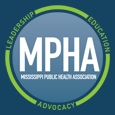Keywords
anxiety; college students; depression; suicide; suicidality; substance use; psychological distress
Document Type
Research Studies
Abstract
Background: College students face challenging environments in which risky coping mechanisms, such as non-suicidal self-injury (NSSI) and substance use may be used to mitigate psychological strain. The purpose of this research was to examine relationships between substance use, psychological distress, and various aspects of NSSI.
Methods: Cross-sectional survey data were collected from students recruited from a large university in the southern United States (n = 502). Instrumentation included validated and reliable scales on substance use, psychological conditions, NSSI behaviors, demographics, and suicidality measures.
Results: In all, 21% reported engagement in some form of NSSI within the past year. A lower GPA, identifying as a sexual minority, engaging in marijuana and other drug use, screening positive for depression, anxiety, suicidality significantly increased the likelihood NSSI. Suicidal ideation and living on campus increased the likelihood of engaging in multiple forms of NSSI. Identifying as female, age at alcohol onset, presence of depression, and all forms of suicidality predicted more frequent NSSI. Following covariate adjustment NSSI outcomes were prominently associated with psychological dysregulation.
Conclusions: Identification of evidence suggestive of NSSI behaviors may be an important indicator of underlying psychological distress and substance related issues. Thereby, providing opportunities for early intervention that precedes suicide attempts.
Recommended Citation
Doyle, N.,
Samuel, K.,
Cohen-Winans, S.,
Ford, M. A.,
Nahar, V. K.,
Olatunde, O.,
Igboanugo, J.,
Irungu, M.,
&
Davis, R. E.
(2025). Psycho-Sociodemographic and Substance-Related Correlates of Non-Suicidal Self-Injurious Behavior.
Journal of Public Health in the Deep South, 5(1), 6.
DOI: https://doi.org/10.55533/2996-6833.1101
Included in
Psychiatry and Psychology Commons, Public Health Commons, Social and Behavioral Sciences Commons

